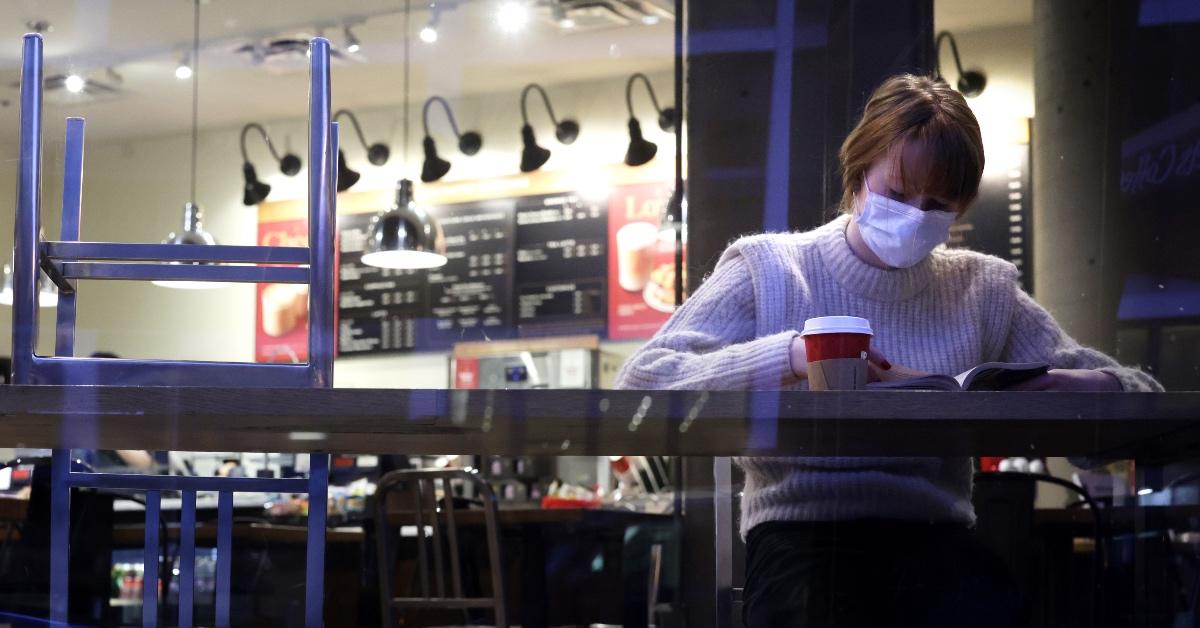CDC Issues New Quarantine Rules, Cuts COVID-19 Isolation Time in Half
The CDC recently updated its quarantine rules for people who test positive for COVID-19 and are asymptomatic. The CDC lowered the isolation period from 10 days to 5 days.
Dec. 28 2021, Published 12:41 p.m. ET

Novel coronavirus cases are rising in the U.S., with cases totaling 52,280,337 in the last 30 days. With the highly transmissible omicron variant of the COVID-19 virus posing a great threat, the American people are looking to health officials for answers and guidance.
On Dec. 27, the CDC issued a new set of guidelines for Americans to follow, although health experts including Dr. Michael Mina, a former epidemiologist, think that the new guidelines are “reckless.” What are the CDC’s new quarantine rules and why is the isolation time being shortened given the surge in COVID-19 infections?
The CDC aims to prevent another economic shutdown and shortens the isolation time.

The COVID-19 pandemic is very new and there's still much to be learned about the virus and its mutations. However, health experts have had the opportunity to study the illness that has claimed over 813,000 lives so far. The findings have led health officials to believe that the isolation time can be shortened.
On Dec. 27, the CDC announced that it was reducing the recommended time for isolation from 10 days to 5 days after a person has contracted the COVID-19 virus and is asymptomatic. After staying in quarantine for 5 days, the CDC suggests that the person wear a mask when they're around other people for 5 additional days.
The CDC is attributing the change in quarantine time to science that “demonstrates that the majority of SARS-CoV-2 transmission occurs early in the course of illness, generally in the 1-2 days prior to the onset of symptoms and the 2-3 days after.” CDC Director Dr. Rochelle Walensky reportedly said that the new guidance aims to prevent another economic shutdown.
Is it smart to cut the isolation time in half?
Dr. Megan Ranney stated during a CNN interview that evidence has shown that those who are fully vaccinated against the COVID-19 virus and are asymptomatic after contracting it aren't infectious after 5 days. However, the data isn't clear for the unvaccinated.
Dr. Ranney also said that in addition to the science that supports the change in guidelines, pressure from employers might have also pushed the CDC to make these adjustments. The emergency room physician also stated that in a healthcare setting alone, having workers out for 5 days as opposed to the previously recommended 10 days could cause less of a disruption in the healthcare system. The same applies to airlines, restaurants, and other fields.
The CDC issued a new set of guidelines for those who have been exposed to the COVID-19 virus.
In addition to changing the isolation time for the asymptomatic from 10 days to 5 days, the CDC also updated the recommended quarantine period for anyone who has been exposed to the novel coronavirus.
If you aren't vaccinated or it has been more than six months since you received your second mRNA dose and you haven't received a booster shot yet, the CDC says that you should quarantine for 5 days followed by 5 days of strict mask usage. The same recommendations apply to those who received their Johnson & Johnson’s Janssen vaccine more than two months ago and aren't boosted yet.
Anyone who has been exposed to the COVID-19 virus but can't quarantine is urged to wear a “well-fitting mask at all times when around others for 10 days after exposure.” If you’ve received your booster shot already and were exposed to the COVID-19 virus, the CDC says you don’t need to quarantine but you should wear a mask when around others for at least 10 days after exposure.
To ensure that best practices are being complied with, you’re also encouraged to test for the COVID-19 virus on day 5 after being exposed to it. If you start to experience symptoms, the CDC says that you should immediately isolate yourself until you test negative for the virus.
Experts call the CDC “reckless” after the agency updated its guidelines on the quarantine time .
The CDC’s updated quarantine guidelines might be good news for the vaccinated population and employers, but some health experts are concerned. Dr. Mina took to Twitter to express his concern about the new rules. He suggested that individuals should only leave isolation after testing negative as “some ppl stay infectious 3 days, some 12.”
Dr. Erin Bromage commented on the CDC’s most recent move to change the isolation time. Dr. Bromage said that he was “baffled” by the CDC’s decision particularly because someone can still have “a huge amount of virus in their [system] 8 days after testing positive.”
Although isolation and antigen testing have helped reduce the spread of the COVID-19 virus, experts say that vaccines are the most effective at protecting against it.
